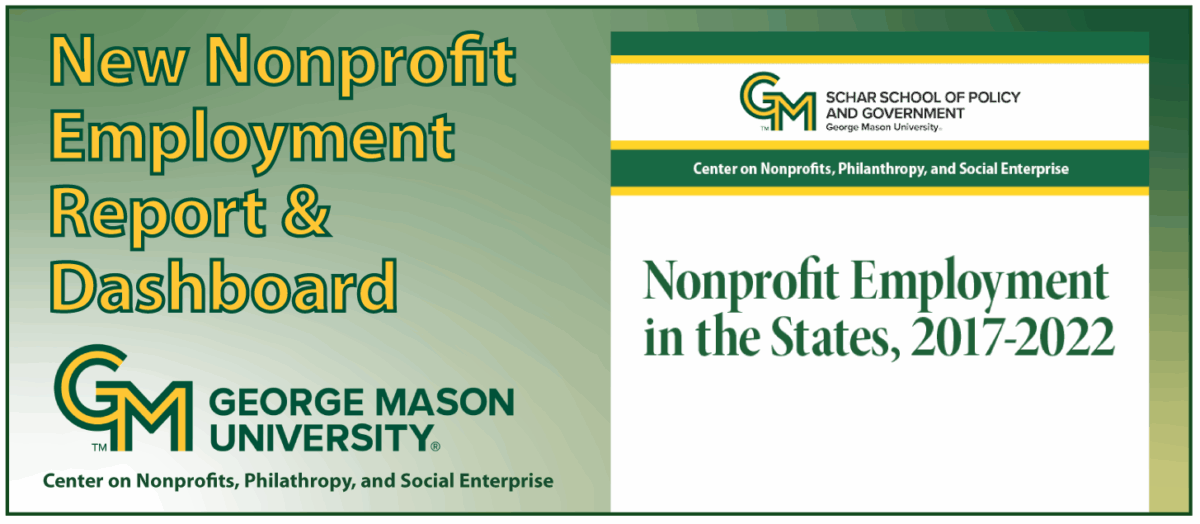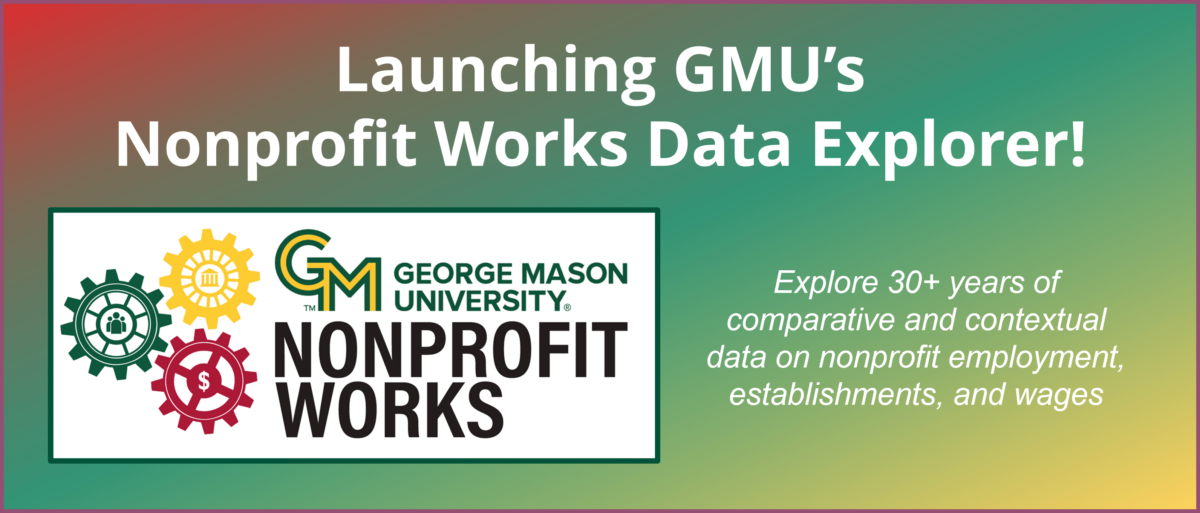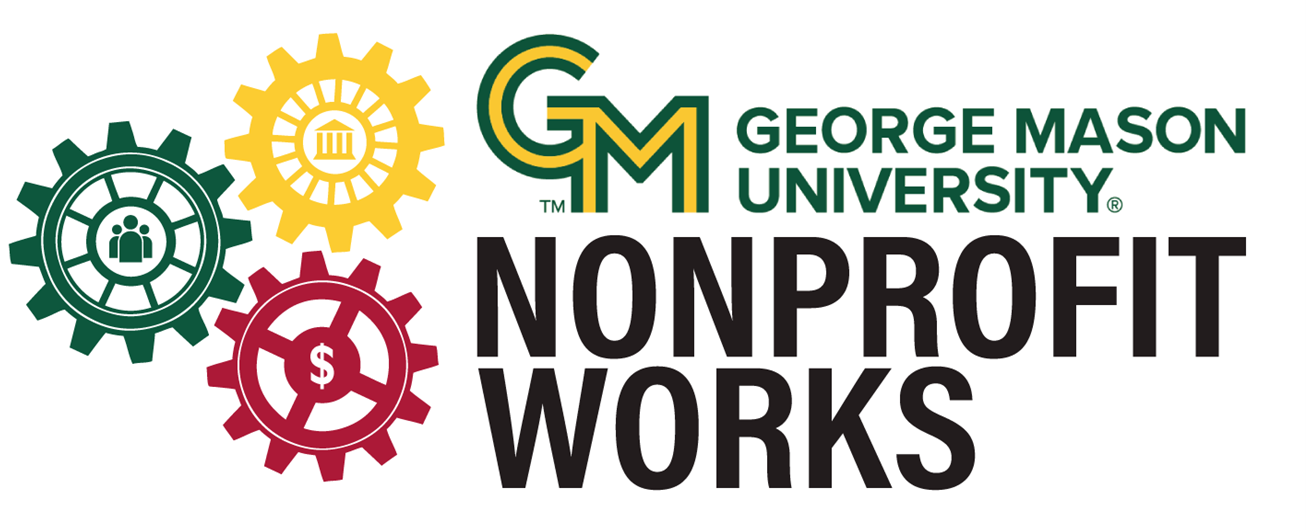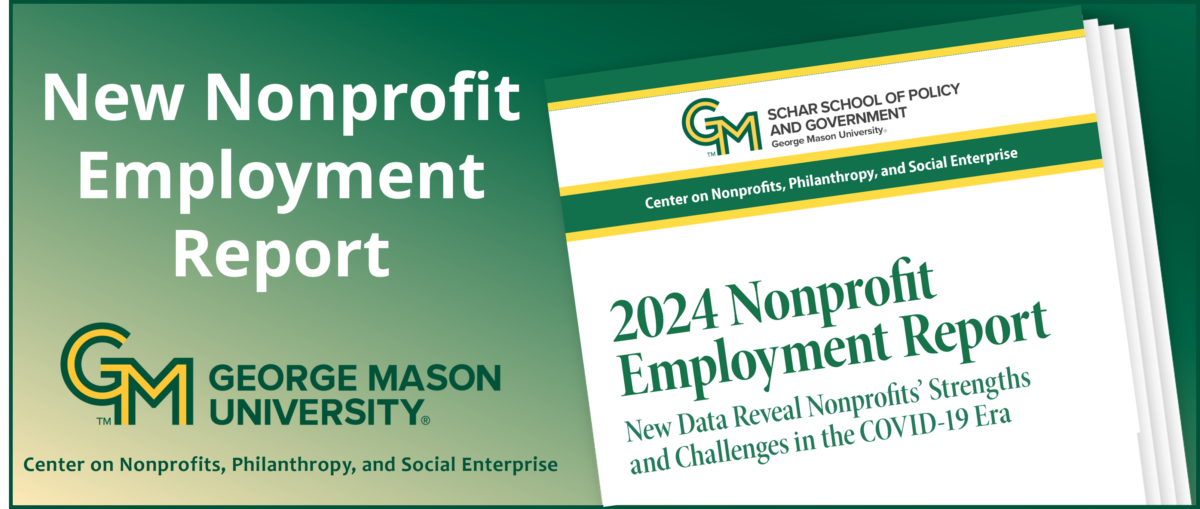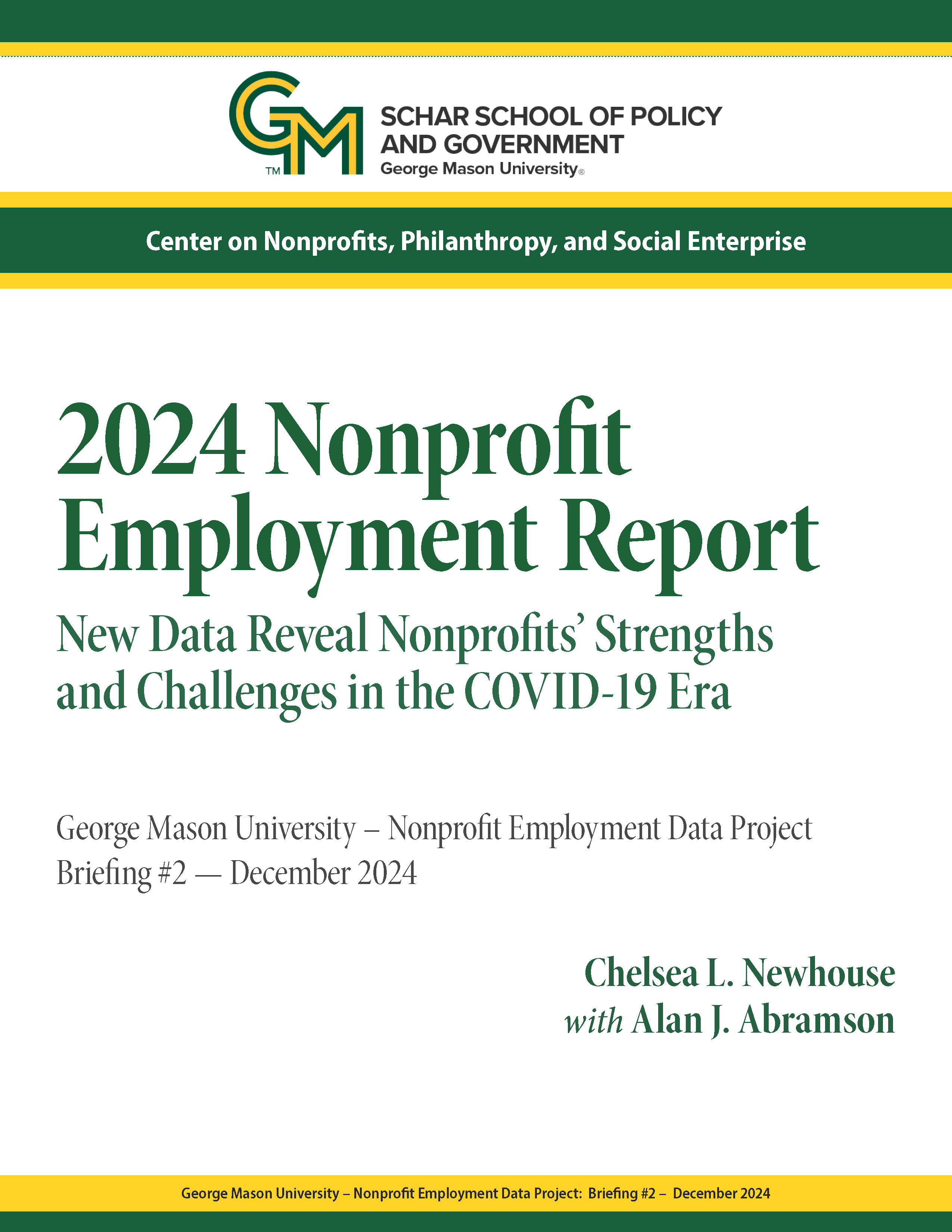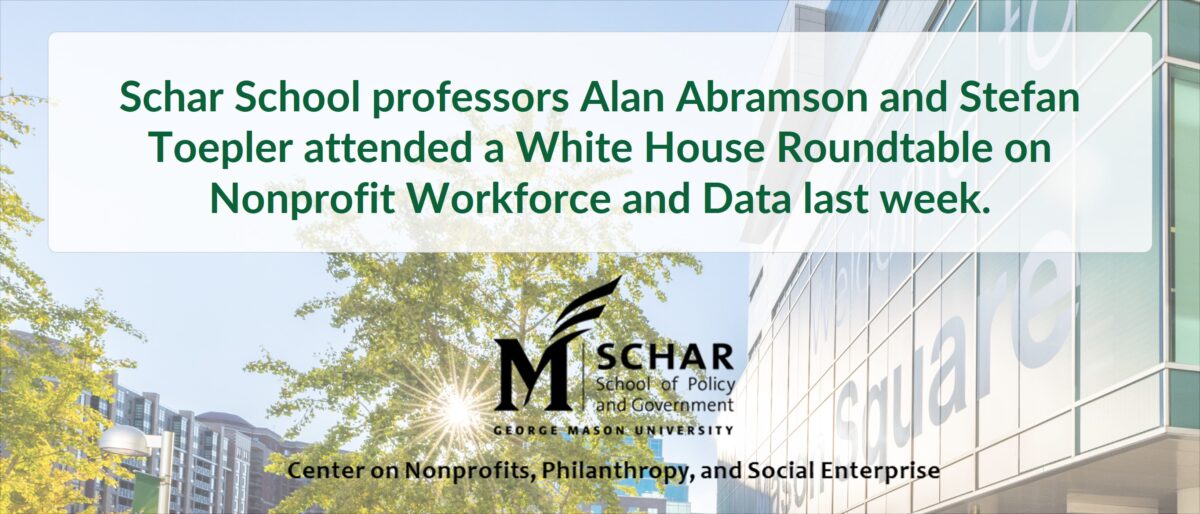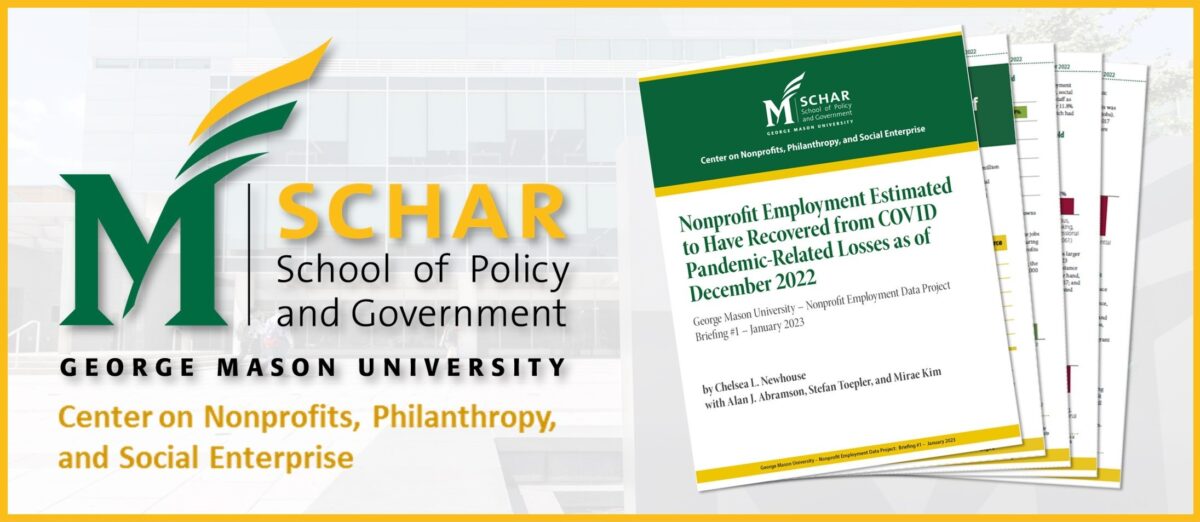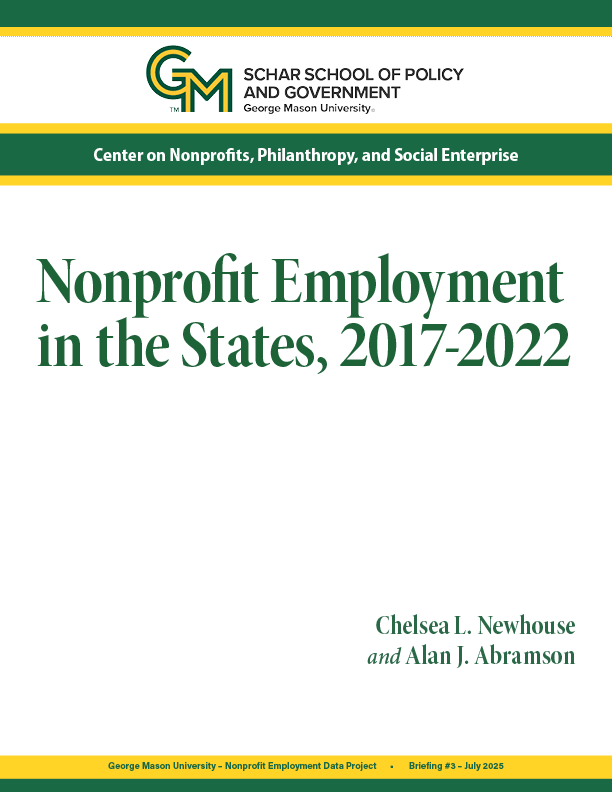
The Center on Nonprofits, Philanthropy, and Social Enterprise in George Mason University’s Schar School of Policy and Government is pleased to announce the release of a new report, Nonprofit Employment in the States, 2017-2022, from the George Mason University – Nonprofit Employment Data Project (GMU-NED) focusing on nonprofit employment and wages in 53 states and territories between 2017 and 2022. A supplementary data dashboard provides field-level data over this same period.
This report follows up on our December 2024 Nonprofit Employment Report which provided an overview of national-level data on nonprofit employment and wages between 2017 and 2022 from the U.S. Bureau of Labor Statistics’ Quarterly Census of Employment and Wages (QCEW). Drawing on this same dataset, Nonprofit Employment in the States examines state-level 501(c)(3) nonprofit employment and wages in 2022, how the onset of the COVID-19 pandemic impacted nonprofit employment in the states and territories, and how state-level nonprofit employment had recovered as of 2022. Due to the unique nature of the underlying dataset, we are also able to compare nonprofit employment and wages to their counterparts in the for-profit sector during this crucial period. The report is structured around five key findings:
- Nonprofits are a major employer in virtually every state and territory;
- Nonprofit wages are a crucial component of state economies;
- Nonprofits in most states retained more of their workforce than their for-profit counterparts in 2020 during the onset of the COVID pandemic;
- However, nonprofits in most states struggled to keep up with for-profits during the first two years of recovery from the pandemic in 2021 and 2022; and
- Nonprofit wages rose faster than for-profit wages in the majority of states during the recovery period.
To supplement this report, we have developed a data dashboard, which provides additional information on the number of nonprofit establishments operating in each state, the fields in which they are active, and how this changed during and in the years immediately following the COVID-19 pandemic. For even more granular data, we invite those interested to consult our GMU Nonprofit Works website that provides user-guided access to these data points down to the county and metro statistical area (MSA) levels, and enables users to compare nonprofits to the government sector, in addition to for-profit businesses.
Led by Center Director Dr. Alan Abramson, in collaboration with his Center faculty colleagues Dr. Mirae Kim and Dr. Stefan Toepler, the GMU-NED Project aims to continue and expand on the important prior work of Johns Hopkins University’s Center for Civil Society Studies. Produced by former Johns Hopkins Project Manager and current GMU-NED Research Consultant Chelsea Newhouse and Dr. Abramson, this new report and field-level data dashboard provide important insights into the crucial economic role of the nonprofit sector in state and territorial economies.
The Center on Nonprofits, Philanthropy, and Social Enterprise is grateful to the Charles Stewart Mott Foundation for its continuing support of this work.
To read the full report, please click here.
To explore the field-level data dashboard click here.
To learn more about the GMU-NED Project, click here.
____________________________
For press inquiries, contact: Chelsea Newhouse, [email protected]
If you would like to keep up-to-date on new data, initiatives, and developments in the nonprofit employment and wage data space, please be sure to subscribe to our mailing list here.

